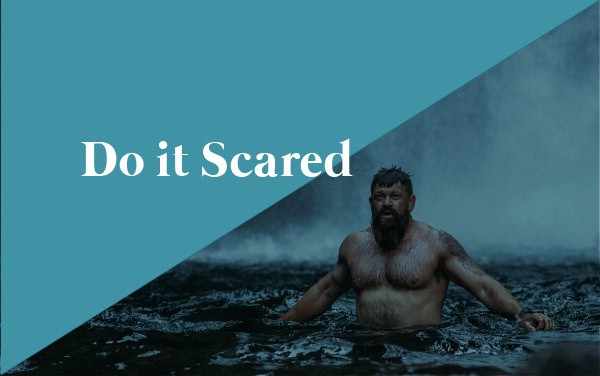
by RE Helper | Mar 15, 2024 | Blog, Early Sobriety, Expectations, The first Year, Uncategorized
Today’s blog entry is from Danielle Marr. Danielle has been a member of Café RE since June 2023. Danielle taught our most recent Ditching the Booze: Writing a New Narrative Course and was one of the teachers in our REstore Dray January Course. She is an active and supportive member of her Café RE OG group!
Do It Scared
By: Danielle Marr (Café RE OG)
Last fall, I committed to teaching Ditching the Booze: Writing a New Narrative, a 5-week course inside of the Café RE community.
As I reflect on that experience, there is so much coming up for me. I was on day three when I reached out to the team to see if they would be interested in hosting a writing course or workshop and the timing could not have been better.
It was one of those serendipitous, Big Magic-type moments where something inside of me said, “do this,” even though it didn’t make sense at all.
I had three days of sobriety – who was I to try to lead a group of people in a course on sobriety?
But I jumped anyway.
It was almost like I was taken over by some unknown source of energy that made me hit send on that email. And, as it turned out, there was a gap that needed to be filled.
The person who normally hosts the fall installment of the Ditching The Booze course had told Paul the day prior that he was unable to do so this time around due to life circumstances. As Paul was working on an email to Kerri with ideas of alternative course suggestions, my email asking them if they were interested in the idea of a writing course landed in her inbox.
Like…what?!
So, we went for it. More than 250 people registered.
Taking a Big Leap of Faith Doesn’t Always Make Sense In The Beginning
I prepped as best I could, and I ran the course every Monday for five weeks. I did it, like…pooping my pants, holy heck, what have I gotten myself into, scared.
And I did it even though I knew I would be leading a group of people in something that was so new to me. A group of people, half of whom, had more than a year of sobriety under their belt.
But the thing was that, even though I didn’t have much sobriety time under MY belt yet, I believed so deeply in the work. I believe so deeply in the power of writing your own story. And I knew, through hearing so many other people’s stories, that service to others is an amazing way to contribute to your own sobriety journey.
I told myself again and again that if I could help even just one person take the next tiny little step on their recovery journey by learning how to unpack and write their own story, all of the fear and doubt I had in myself would be worth it.
That didn’t make it any less terrifying though.
I have never had the confidence or self-trust to consider myself a teacher or a leader. I’m sure that was somewhat apparent to the participants in the class. But, the thing is, there is only one way to grow and that was a beautiful opportunity for me to work on my growth. Leading writing workshops and courses in the recovery space is something I want to do a whole heck of a lot more of moving forward.
When You Allow Yourself to Take The First Step, The Rest of The Journey Gets a Little Bit Easier
I led one of the classes for the January REStore course. I was able to tackle it from a place of experience, and a little bit more confidence.
But the first step was doing it scared.
Doing it without knowing how it would land.
Having sweaty palms and a racing heart, but showing up anyway.
I was able to do that because of the amazing support and faith that both Paul and Kerri showered me with leading up to and throughout the course. And the feedback that we got on the course was, to put it lightly, phenomenal. That last call will go down in the books as one of my most powerful sobriety moments thus far.
The thank you’s, and the beautiful, brave souls speaking up to say how much they had been looking forward to Monday nights all month long, among other wonderful acknowledgements truly warmed my heart in a way I don’t know I can ever fully express.
I started thinking about some of this after we got off that last call. And while I didn’t say it at the moment, I knew I needed to write about it.
Because it is such a beautiful representation of what it takes to quit drinking in the first place.
When we are so wrapped up in addiction, and we’ve been living a life consumed by that substance for so long, we don’t know what life is going to look like when we quit.
And that is an unbelievably terrifying prospect.
From the fear of what will happen to our bodies and what the withdrawal process will look like. How we will fill our days and who will want to spend time with us. It’s all such a big, hairy, scary unknown.
You have to do it scared to get to the other side.
Leap Without The Net & Trust That The Person You Are About to Become Will Be There to Catch You
You have to leap without the net. And then hope the version of you that you are about to become will be there to catch you. (Along with a truly amazing sobriety community if you happen to be part of something like Cafe RE).
You have to have so much visceral trust in yourself and the reason why you are doing it.
So, my message to anyone reading this is that if something is calling to you in your heart – whether it’s taking the leap to quit drinking or putting yourself out there by joining a community and opening up after months or years of self-isolation, or even applying for a job – do it scared.
Take the leap and trust that the net will appear.
Know that it might not go the way that you expect it to go.
That there will be hiccups. Moments of two steps forward and one step back. And you will probably feel like you have no idea what you are doing. But if it is something you know so deeply in your heart is going to be worth it, even if wading through the darkness of the unknown seems like the most terrifying prospect in the world right now, try anyway.
The time will pass one way or the other, but if you try, and you really give it your best effort, you will be proud of yourself. You’ll know that you did what you could with the resources you had available to you at the time. You’ll know that you showed up for yourself in ways that you’ve never done before.
You can so totally do this. Even if you’re scared.
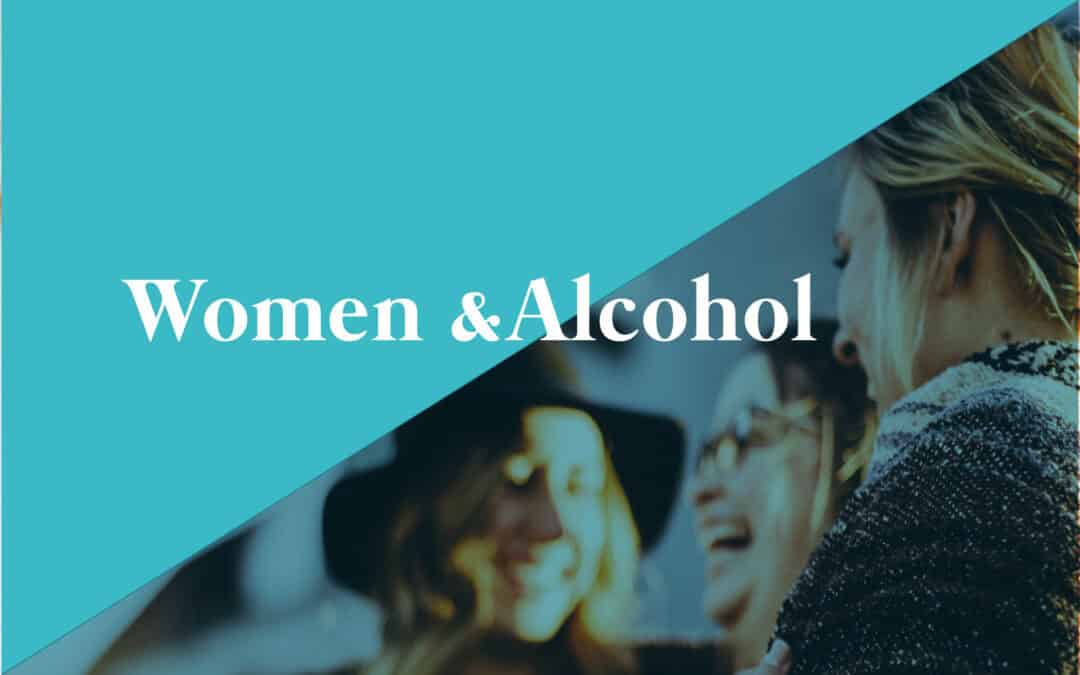
by RE Helper | Feb 15, 2024 | Alcohol Free, Blog, Early Sobriety, Resources, Womens health
Today’s blog entry is from Alisa. Alisa has been a member of Café RE since July 2023. She recently took part in our Recovery Elevator REstore 2024 course. She is an active and supportive member of her Café RE GO group!
Women and Alcohol
By: Alisa (Café RE GO)
I’d heard the anecdote that women had started to surpass men with their drinking habits. Then in 2023, the WHO announced that no amount of alcohol was safe for consumption. This was all lining up with what Holly Whitaker said in her book Quit Like A Woman. So I sought to dig into this and better understand what was behind these trends in women’s drinking.
The history of women and alcohol is an interesting one.
It zigzagged from a movement to ban alcohol (predominantly to stop men from plundering the family savings at the bar) to the pursuit of a seat at the bar. Ironically, Prohibition gave rise to secret bars (speakeasies). Where women were able to redefine long standing gender roles by smoking, drinking, and having fun in public. Though women had imbibed before this time, they had rarely done so in public because as you can imagine, most drinking establishments were male-only. “So for young women, speakeasies stirred a spirit of rebellion”.
In order to understand what happened to the alcohol industry, it’s useful to examine what happened with cigarettes.
Big Tobacco used several strategies to advertise to women. For example, the industry prompted a feminine ideal of thinness presenting the cigarette as a way to achieve this ideal. They taught Hollywood actors how to smoke in films to make smoking look sophisticated. They also hired a PR giant. The PR giant then hired women to smoke in a parade to manufacture a connection between smoking and liberation. He coined the term “Torches of Freedom” to encourage women to smoke as a symbol of emancipation and an act of challenging social taboos.
Big Alcohol* rode in on the coattails of the tobacco industry.
They used similar tactics to market alcohol to women by appealing to their thirst for equality and independence. By making tobacco products custom fit to women (think Virginia Slims) and hiring women to smoke while engaging in the women’s liberation activities, they spread the idea of smoking as empowerment. Similarly, the alcohol industry created pink drinks, colorful labels, overpowering fruit flavors, and low-calorie options to target women by capitalizing on gender stereotypes. I find these strategies incredibly ironic since initially the alcohol industry used women’s bodies (and implicitly the promise of sex) to sell alcohol to men.
The advent of social media made things even easier for Big Alcohol
The advent of social media made things even easier for Big Alcohol as algorithms specifically targeted individual demographics. Now we receive customized ad feeds based on our past behaviors. Us social media users also became their advertisers by spreading trends like “Rose All Day.” Culturally, alcohol (and especially wine) became a symbol of stressed-out women and moms with memes featuring “Mommy juice.”
Sadly, these common marketing messages exploit women’s desire for friendship, relaxation, and empowerment. Having a glass of wine has become a way that women and moms feel like they are taking care of themselves. As Sarah Hepola put it in her drinking memoir Blackout, “Wine and confession. Wine and sisterhood. Wine had become our social glue, the mechanism of our bonding. We needed the wine to shut out the jackhammers of our own perfectionism and unlock the secrets we kept within”.
While many of us use alcohol as a social lubricant, we may also use it to “unwind” in private.
While many of us use alcohol as a social lubricant, we may also use it to “unwind” in private. Concepts like ‘Wine o’clock’ offered permission to drink when we felt like it and linked alcohol to a method for navigating daily life stress. Absolutely none of us are to be blamed for falling for this and using alcohol in these ways. As the addiction and trauma specialist Gabor Mate says, alcohol use is a response to pain and suffering. Alcohol has long been a culturally accepted and condoned way of dealing with stress. In fact, alcohol marketing to both women and men ramped up during one of the most stressful global times in recent history: the pandemic. Here is an example of a marketing slogan by Retail Drinks Australia:
“If we want people to stay at home, if we want them in a good state of mental health with a conviviality that encourages them to adhere to social isolation, we’ve got to ensure they have access to the social norms such as enjoying a drink.” Danica Keric and Julia Stafford from the Cancer Council Western Australia’s Alcohol Programs Team said in response, “There was a deliberate move by the alcohol industry to frame alcohol as an essential product including for our mental health, during the pandemic”.
If you’re not appalled by now at how the alcohol industry operates, consider how the same things are happening with our food supply.
Like alcohol and cancer, the food industry plays a significant role in the metabolic disease rates in our country by lacing food with addictive chemicals like sugar and then obscuring the dangers of these additives. “The system works. Not for the best interests of health but for the best interests of those who are profiting off the system” Michael Greger, author of How Not To Die.
My favorite Quit Lit writer and recovery program pioneer, Holly Whitaker, summarizes:
“We read labels, we shun gluten, dairy, processed foods, and refined sugars. We buy organic, we use natural sunscreen and beauty products. We worry about fluoride in our water, smog in our air, hydrogenated oils in our food, and we debate whether plastic bottles are safe to drink from.
We replace toxic cleaning products with Mrs. Myers and homemade vinegar concoctions. We do yoga, we run, we SoulCycle and Fitbit, we go paleo and keto, we juice, we cleanse. We do coffee enemas and steam our yonis, and drink clay and charcoal, and shoot up vitamins, and sit in infrared foil boxes, and hire naturopaths, and shamans, and functional doctors, and we take nootropics and we stress about our telomeres. These are all real words.
We are hyper-vigilant about everything we put into our body, everything we do to our body, and we are proud of this. We Instagram how proud we are of this, and we follow Goop and Well+Good, and we drop 40 bucks on an exercise class because there are healing crystals on the floor.
The global wellness economy is estimated to be worth $4 trillion. $4 TRILLION DOLLARS. We are on an endless and expensive quest for wellness and vitality and youth. And we drink fucking rocket fuel”.
While women started off forbidden from drinking in public, women are now drinking as much as men if not more. But what most women don’t know is that our rates of addiction and alcohol-related deaths are surpassing theirs. It turns out that due to our physiology, women start to have alcohol-related problems sooner and at lower consumption rates than our male counterparts. This occurs because of how we process alcohol. Because we have lower total body water content, blood alcohol levels are higher. The first stage of alcohol metabolism is slowed which results in more alcohol being absorbed into the bloodstream. Unfortunately, this leads to greater generation of liver-toxic products like acetaldehyde. Thus, imbibing alcohol increases the vulnerability of women to the risk of alcohol-related illnesses such as liver disease and cancer.
In my fantasy worldview, everyone is ethical and people who have the authority to powerfully impact public health make the “right” (aka moral) decisions. Sadly, this isn’t true. The way we can take our power back is to know the truth and make decisions based on these facts. When I started treating sobriety as an act of rebellion, something new clicked for me. I hope it can for you too.
*Big Alcohol refers to the lobbying front group for twelve of the largest multinational alcohol corporations.
**More from Recovery Elevator referencing Big Alcohol**
RE Podcast Episode 407
Blog – A Messgage to Big Alcohol
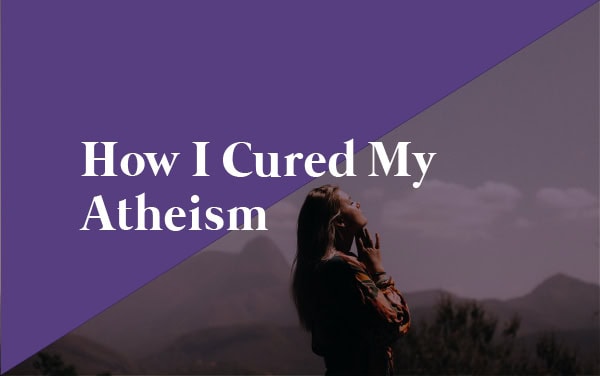
by RE Helper | Jan 15, 2024 | Alcohol Free, Blog, Expectations, Helpful Tips, Resources, Uncategorized
Today’s blog entry is from Bobbie Malatesta. Bobbie has been a member of Café RE since February 2020. Bobbie just celebrated 4 years alcohol free and is a big source of support to her Café RE UP group!
How I Cured My Atheism
By: Bobbie Malatesta (Café RE UP)
Recently, someone shared a beautiful acronym that I wish I had earlier in my spirituality journey. Before I get into that, please allow me to explain a little of my history in this department.
In my family, we had the Italian and Polish grandparents that were traditionally Catholic. My parents didn’t make us be Catholic except for when we went to weddings and funerals of course. I was given the option to choose what religion I wanted to be.
At age 10, I decided to get baptized a Baptist. I was to stand in a sunken tub in the church and get dunked by the clergy and that would be that, right? Well, not exactly. I begged the man baptizing me to hold my nose when he dunked me. Guess what? He didn’t!!
And so began my atheism. How could I trust this God if his person couldn’t even help me with my minor little request? Staying true to my disbelief and anger was easy as my life unfolded. Trauma, tragedy, death after death, abandonment, and all the other bull-oney that life has to offer seemed to start and never stop in my life. How could there possibly be a “”God” if all these bad things kept happening to me?
And so my life went.
Once I joined 12 Step and had to memorize the Serenity Prayer, it got a bit more challenging. Any time my GA crew wanted me to kick off the prayer, they expected me to say that “G” word but I didn’t want to talk to him. I still didn’t believe in him. On account of my big mouth and the fact that one of the principles in the program is that you don’t have to believe in the G word per seh, we found a compromise. Whenever I started the prayer, I addressed the Universe. Eventually, some of my fellows would start with Universe too, in support of me.
Things were going along just great until I got to Step 11. “ Sought through prayer and mediation…. conscious contact with GOD….” Oh Sugar! It was time to revisit this whole God concept for me. Long story short, I started going to church, meditating and doing the work so I could “graduate” Step 11.
One of my favorite parts of doing this “work” was being in recovery communities like Café RE. Working on Recovery Dharma, Sober travel trips with beautiful peers, learning from Patrick and appreciating the landscape of Bozeman all contributed to what is defined as spirituality to me now. I can see God now in the essence of people, sunsets and sunrises and music. The key is it doesn’t have to be labeled as god, universe or any other word in particular.
The end result was that for me, I now believed in a God, and I still choose to call her or him, Universe.
Now, I have embraced and want to share GUS!
GUS was there all along and I heard about him when I was supposed to, recently at a conference.
GUS stands for:
God
Universe
Source/ Spirit
I am believer that there is no one right way for anything, including our own spirituality. This is not meant an insult to anyone’s faith or choices, but to offer a solution to anyone who might be stuck on this premise like I was.
Either way, GUS got us, no matter what you call her/ him/ it.
Thanks for letting me share!
With Love & gratitude,
Bobbie
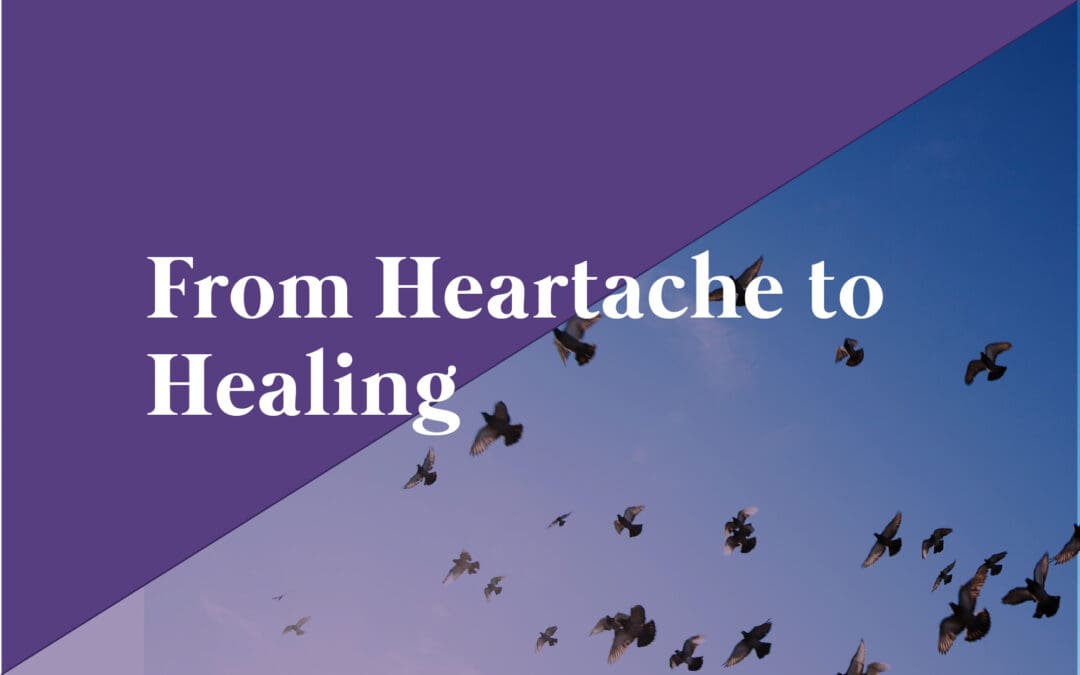
by RE Helper | Dec 15, 2023 | Alcohol Free, Blog, Early Sobriety, The first Year, Uncategorized
Today’s blog entry is from Adam Whitman. Adam has been a member of Café RE since September 2022. Adam has been alcohol free since January 1, 2023 and is very active within his Café RE OG community.
From Heartache to Healing
By: Adam Whitman (Café RE OG)
February 1st, 2023
My first month of sobriety is written in the books. 
The pink cloud is in full view and you better believe I’m right up in it. I take that back. I’m above it. Look at me soar. I’ve actually done it. I quit drinking. And you know, it isn’t that hard. Might I dare say it’s easy? I don’t even want to drink. It’s gross. I actually think it’s gross now.
I can’t hold back. I’m going to say it.
I am a freaking badass.
August 1st, 2023
My seventh month of sobriety is written in the books.
My negative thinking is out of control. Insecurities are running rampant. I no longer relate to my circle of friends. “I don’t like the new Adam” they say as I watch them slowly slip away.
And I’ve gotten fatter. What? Fatter? How the f**k did that happen?
I’m in the midst of the worst people pleasing flareup of my life. My marriage is hanging on by a thread. The woman who I’ve shared 22 years of my life with, who I’ve raised two beautiful children with, is tired. We’re both tired. And I’m not sure we can hold on much longer.
I can’t hold back. I’m going to say it.
I am a freaking mess.
August 5th, 2023
Today I set sail to the RE Bozeman Retreat. I’m driving. Yes, you heard me right. This Texas boy is driving to Montana–3,200 miles round trip. Let’s do this.
But wait a second. Was I really talking about splitting assets with my wife yesterday? Were we really talking about how we would manage custody of our children? What the hell is going on?
Maybe I shouldn’t go. But right now, Bozeman seems to be the only answer. As to what the question is, I have no idea. One thing remains certain.
My life is a wreck.
Trinidad Lake State Park
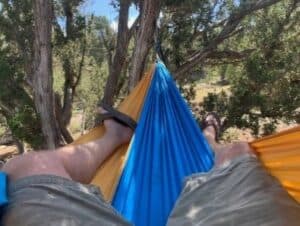 Eight hours to Trinidad, Colorado complete.
Eight hours to Trinidad, Colorado complete.
The tent is up and I’m resting easy in my hammock. Look at me go. I can do this alone. I don’t need anyone. In fact, being alone is better. I am one strong dude. Back and forth my hammock swings between two trees until the sun goes down and the darkness sets in.
I’m lonely.
And afraid.
Did she really say she would leave me?
Quitting drinking uncovered some shit, didn’t it? I can’t get these thoughts out of my head. Who imagined it would be a good idea to venture out into the world alone in a tent for three days? Why am I such a mess? Will I ever get better? Will I be able to stop thinking about her? About me? About all of the shame and regret?
Sun, you can come up now.
 August 6th, 2023
August 6th, 2023
Glendo State Park
Six hours to Glendo, Wyoming complete.
My tent is pitched. It appears as if I’m the only person in this park. Rain starts to fall.
The negative thoughts continue to flood my mind. In addition, the solitude is proving that I really annoy myself. What does that even mean? I annoy myself? Is this what it’s like for others to be around me?
The thoughts continue to relentlessly take over. But within the constant bombardment of negative thinking a new softly spoken response starts to emerge.
Tell the thoughts to stop.
But I can’t.
Yes, you can. Quiet them. Just try it.
Adam, you’ve hurt people. Shh… Adam, you’re not doing enough. Shh… Adam, you’re worthless. Shh… Adam, you’re a failure. Shh… Over and over, like a broken record. Shh…. Enough.
Did drinking cause this madness? No. It hid it though, buried it deep. And now it’s here crawling out of the dark threatening me, whispering lies. I keep telling it to shut the hell up. But will it listen?
Persistence remains.
Time will tell.
August 7th, 2023
Grandview RV Park
Five hours to Hardin, Montana complete.
I chose an RV park this time, laundry and a hot shower, and people too. It’s been awhile. They distract me. This is good. The sunset is beautiful. I order a pizza and rest.
Tomorrow I will be in Bozeman. There I will finally be in the physical presence of my Recovery Elevator friend Jim. We initially met at the REstore Dry January course, the course where my journey towards enlightenment started, where the ups and downs of sobriety began. And Jim held onto me throughout.
If you know Jim that shouldn’t surprise you.
August 8th, 2023
Days Inn Bozeman
Four hours to Bozeman Montana complete.
It’s my first night out of a tent and in a motel. Jim is staying here too. I’m nervous.
After a couple of hours, we meet for dinner. During our introduction a firm handshake occurs followed by an awkward jump as if we both stuck our fingers in a light socket. It’s the ‘should I go in for a hug but then suddenly decide against it’ jump. Solid handshake though Mr. Jim.
I’m glad to finally meet you.
You’ve been a dear friend.
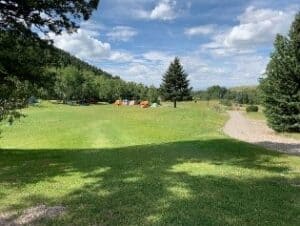 August 9th, 2023
August 9th, 2023
Thirty minutes to Big Sky, Montana complete.
No turning back now.
Jim and I arrive at the retreat. I unpack my gear and set up my home for the next four days. It’s beautiful out here. Once my tent is ready I walk to the registration area. It quickly becomes apparent that many of these retreat goers already know each other.
What if they don’t like me? I am just a middle-aged dude with issues who somehow made his way far from home. Ain’t nothing special about me. Heck, I don’t even know if I like me.
The voices persist.
Maybe I’ll just stand here and pretend I’m feeling confident. Keep your hands out of your pockets Adam. Be cool man. Be cool.
But It didn’t take long before it happened. One, after another, after another approached me. “Where are you from?” they would ask. “You drove here?” “That’s so cool!” “Do you have a family?” “What are their names?”
My God they are so kind. Are all of them like this? Soon I realized that yes, they are. I wondered why. By the end of our time together I found the answer.
It’s because we all share in each other’s unavoidable suffering.
I used to think I could drown that suffering with booze, repress it somehow, maybe even eliminate it, alone. But as you might have guessed it never worked. It only made it worse.
Instead, in the presence of others working their recovery in the stunning landscape of Big Sky Montana, I dared to expose my suffering. I didn’t fight it, I didn’t hide it, I didn’t drown it, I shared it. And they shared theirs with me. And it was beautiful.
Connection is the opposite of addiction and I get it now.
I am here.
I am whole.
Finally.
August 23rd, 2023
My reentry home was purposely slow. I took my 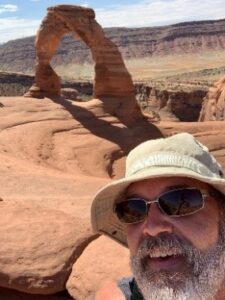
new-found freedom into the Utah desert first, then back up
into western Colorado to meet my Recovery Elevator
accountability partner, and finally back to the unbearable
Texas heat.
Everything’s changed.
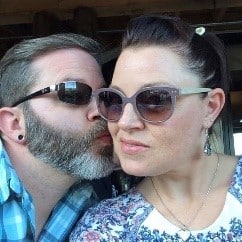 I missed her.
I missed her.
And come to find out, she missed me.
Today was our first day of marriage counseling.
I’m hopeful.
The negative voices, they’re still there. But they’re quieting, fading. Why? Because I have recovery tools to work with now.
And I have friends.

by RE Helper | Nov 21, 2023 | Blog, Early Sobriety, Helpful Tips, Holidays, Uncategorized
A special holiday bonus blog from one of our Café RE members!
Holiday Survival Guide: Tips and Tricks
By: Adrienne (Café RE GO)
The holidays are coming and everyone is drinking….Sending out an SMS (Save My Sobriety)!!
We’ve all been there. The annual holidays set in and the only non-drinkers are you and the kids!
The question you may be asking yourself is…
How do I stay strong when the holiday vibe is booming and everyone is in party mode celebrating all that we have to be grateful for?”
To reframe this question I would ask…
How do I honor myself and my goals of sobriety in this time of annual appreciation for myself and my loved ones?”
How do I want to celebrate in a way that is relaxing, Fun (Rule 22 here from Café RE), and supports me feeling great in the moment and the following day?
Play the tape forward and then imagine yourself remembering the gathering; how do you want that to look or feel?
What tools will I bring with me to keep me accountable to the life I want to live? (The tools are different for everyone.)
For me, I bring my smartphone so I can stay close to my supports (Café RE peeps). I bring AF drinks (Athletic Brewing Co., Run Wild NA beer is a favorite). I bring an open mind. I’ve even brought my list of my why’s before tucked in a back pocket. And I bring an exit plan. The exit plan is my trap door and it’s a must. This could include me just leaving the party without saying I’m doing so, I may tell someone close to me that I’m out, or I may do the long goodbye; you know the one with all the hugging :).
What do I say if they offer me a drink or ask why I’m not drinking? There are several ways to come at this.
You can bring your own drinks, if it’s an AF beer odds are they won’t even notice that you aren’t actually drinking the poison (I’ve tested this one out). If offered a drink; “sure I’ll have a water”.
If further probing into why you aren’t drinking stick to the facts. You could say your not drinking anymore, you could say you are driving, you could say you aren’t drinking tonight. The secret to this scenario is you are more invested in what’s going on with your path than they are. Most people don’t really want the laundry list of your alcohol history. They want to know, are you in or are you out. Odds are they won’t even care what your ingesting once they are in the haze.
If things get awkward change the subject, use the bathroom to regroup, put your needs first, and if all else fails…trap door my friend.
Buuuuut….What if they think I’m boring?. First, who are they specifically? Is there really a they or is it just your inner dialogue trying to sabotage you with old thought patterns?
Listen….YOU ARE NOT BORING! You are your beautiful, authentic, one and only self! Sober life is anything but boring.
Buuuuut…What if they think I’m judging them or they are bummed I won’t drink with them?
Oh that’s right, the people pleasing!
I know it well friends. If I do the thing they want then they will like me, think I’m cool, and/or want to hang out with me.
Maybe that’s all true, but is it worth compromising your own comfort for theirs?
In the moment this may be uncomfortable but I’m asking you to stay with it. Exposure to our fears/triggers and staying the course is important field work to success. Every time you overcome a situation with your own tools for change and growth you get stronger! Each time you succeed you are gaining experience to draw from that proves that you can navigate life and socialize sober! You learn who is an ally in your life, who to put your energy toward, and who you want to develop relationships with.
On this holiday season my wish for you is that you put your needs first, protect your sobriety, be gentle with yourself, and please listen and honor yourself. I hope you find all the joy that exists with your family and friends
Happy Holidays!
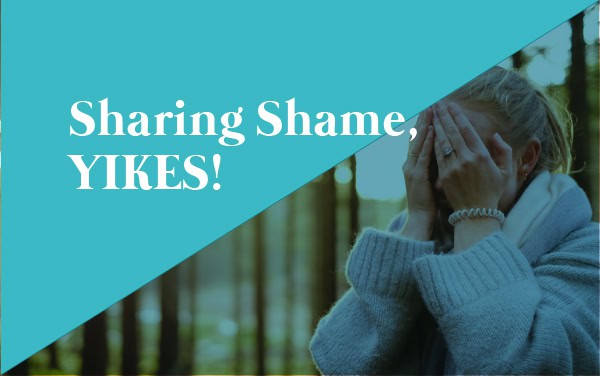
by RE Helper | Nov 15, 2023 | Alcohol Free, Blog, Early Sobriety, Expectations, Helpful Tips, The first Year, Uncategorized
Today’s blog entry is from Dustin Wade, who has been a member of Café RE since March 2021. Dustin has been alcohol free since January 30, 2020. He is very active within his Café RE UP group and on our community chats.
Towards the end my drinking progressed to the point that I started drinking as soon as I woke up. I knew this was taking me down a dark path.
This behavior started when I was newly divorced, single and could do whatever I wanted. Why not start drinking first thing in the morning? Fast forward, now in a relationship (with my now new bride!) I would have an hour or two to sneak some in before she woke up, and the sneaky behavior began!
My drinking continued at work, filling various water bottles with wine, beer, and vodka to drink in my office. Going out to lunch, and sitting at the bar to drink more. I would keep the buzz going until I went home. Then I would try and hide the fact that I had been drinking all day. Oh, then there were days I would lie about working late and hit the bar again on the way home.
My car got towed one time and I lied about having to ‘work even later’ so I could get it out of the impound lot. With the drinking all day, that meant I did a lot drinking while driving, and never thought twice about it! While at the same time judging others who did it too.
Day after day, the shame ran deep.
Shame kept me drinking for far too long, and my drinking routine caused some significant weight gain. It embarrassed me. I was always the skinny kid growing up, so I felt like everyone was judging me. Growing up my family didn’t open up and talk about our struggles. This contributed to me letting the shame of drinking build up inside. Eventually, all the lying and drinking all day caught up with me and I had to face the music. When my fiancé found some hidden alcohol I had to share what had been building up inside for so long. Unable to hide behind a lie, I had to tell her how much I was drinking. Finally talking about this big secret I’d kept for so long I felt some burden being lifted. It was the scariest thing I’ve ever had to do!
I had always known that day was going to come. Part of me wanted it to happen this way, and part of me wanted to go out with a big rock bottom. A few days later, I stepped into an IOP (intensive outpatient program) and shared my shame of abusing alcohol with total strangers. Once I did it was like something reached into me and lifted this huge burden buried deep inside. I wept. It was so emotional hearing the words that I had a problem with alcohol come out of my mouth.
I quickly learned how powerful sharing shame could be.
Sharing shame can come in many forms, and you may want to know who your audience is before sharing. It might be with loved ones, close friends, AA meetings, your sponsor, therapists, rehab programs or publicly, like on the RE Podcast. It might be a post in a private Café RE group or a share on a Café RE chat.
A big share for me was doing the Café RE member spotlight, where I shared my story with the group.
Along the way, I was listening to other shares, and with everyone, there was something that resonated with me, and comforting to know I wasn’t alone. For this reason, I continue to share, because you never know who may need to hear what you have to say. What I realize now, is that I have shared shame is safe places, and I knew the audience. I think this is important to note.
There is a lot out there on sharing shame. Here is an excerpt from psyche.co website about sharing shame: ‘Sharing about our shame can help us realize that others will accept us despite self-perceived flaws. Further, sharing often provides a space where others open up and actually relate to our experiences, which decreases the sense of aloneness and can increase our trust in opening up to others.’
This last part of the quote really hits home, the decrease in a sense of aloneness has been huge for me, and bright spot in my recovery. Likewise, my increased trust in opening up to others has allowed me grow and learn. There was certainly no growth when I just bottled things up inside, with no outlet other than drinking.
I will leave you with this quote by author Ann Voskamp, ‘Shame dies when stories are told in safe places.’
Have you shared your shame?






 Eight hours to Trinidad, Colorado complete.
Eight hours to Trinidad, Colorado complete.  August 6th, 2023
August 6th, 2023
 August 9th, 2023
August 9th, 2023
 I missed her.
I missed her.


